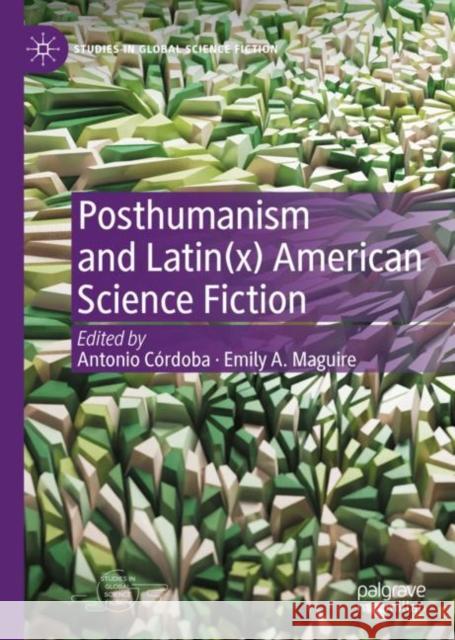Posthumanism and Latin(x) American Science Fiction » książka
Posthumanism and Latin(x) American Science Fiction
ISBN-13: 9783031117909 / Angielski / Twarda / 2022 / 257 str.
Posthumanism and Latin(x) American Science Fiction
ISBN-13: 9783031117909 / Angielski / Twarda / 2022 / 257 str.
(netto: 575,06 VAT: 5%)
Najniższa cena z 30 dni: 501,19
ok. 16-18 dni roboczych.
Darmowa dostawa!
This volume explores how Latin American and Latinx creators have engaged science fiction to explore posthumanist thought. Contributors reflect on how Latin American and Latinx speculative art conceptualizes the operations of other, non-human forms of agency, and engages in environmentalist theory in ways that are estranging and open to new forms of species companionship. Essays cover literature, film, TV shows, and music, grouped in three sections: “Posthumanist Subjects” examines Latin(x) American iterations of some of the most common figurations of the posthuman, such as the cyborg and virtual environments and selves; “Slow Violence and Environmental Threats” understands that posthumanist meditations in the hemisphere take place in a material and cultural context shaped by the catastrophic destruction of the environment; the chapters in “Posthumanist Others” shows how the reimagination of the self and the world that posthumanism offers may be an opportunity to break the hold that oppressive systems have over the ways in which societies are constructed and governed.
This volume explores how Latin American and Latinx creators have engaged science fiction to explore posthumanist thought. Contributors reflect on how Latin American and Latinx speculative art conceptualizes the operations of other, non-human forms of agency, and engages in environmentalist theory in ways that are estranging and open to new forms of species companionship. Essays cover literature, film, TV shows, and music, grouped in three sections: “Posthumanist Subjects” examines Latin(x) American iterations of some of the most common figurations of the posthuman, such as the cyborg and virtual environments and selves; “Slow Violence and Environmental Threats” understands that posthumanist meditations in the hemisphere take place in a material and cultural context shaped by the catastrophic destruction of the environment; the chapters in “Posthumanist Others” shows how the reimagination of the self and the world that posthumanism offers may be an opportunity to break the hold that oppressive systems have over the ways in which societies are constructed and governed.











